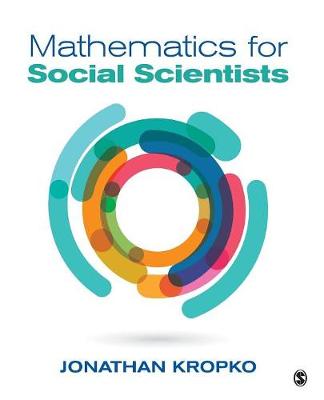
Stock image for illustration purposes only - book cover, edition or condition may vary.
Mathematics for Social Scientists
Jonathan M. Kropko
€ 136.37
FREE Delivery in Ireland
Description for Mathematics for Social Scientists
Paperback. A non-intimidating approach to learning or reviewing math skills essential in quantitative research methods. Num Pages: 408 pages. BIC Classification: JHBC; PB. Category: (G) General (US: Trade). Dimension: 190 x 235 x 27. Weight in Grams: 684.
The text builds students' confidence by presenting material in a conversational tone and using a wealth of clear and applied examples. Author Jonathan Kropko argues that mastering these concepts will break students' reliance on using basic models in statistical software, allowing them to engage with research data beyond simple software calculations.
The text builds students' confidence by presenting material in a conversational tone and using a wealth of clear and applied examples. Author Jonathan Kropko argues that mastering these concepts will break students' reliance on using basic models in statistical software, allowing them to engage with research data beyond simple software calculations.
Product Details
Format
Paperback
Publication date
2015
Publisher
SAGE Publications Inc
Condition
New
Number of Pages
408
Place of Publication
Thousand Oaks, United States
ISBN
9781506304212
SKU
V9781506304212
Shipping Time
Usually ships in 15 to 20 working days
Ref
99-99
About Jonathan M. Kropko
Jonathan Kropko is a professor in the Department of Politics at the University of Virginia, where he also serves on the steering committee of the Quantitative Collaborative, an interdisciplinary research initiative for applied statistics in the social sciences. Previously, he held a postdoctoral research fellowship at the Applied Statistics Center at Columbia University and was a statistics consultant at ... Read more
Reviews for Mathematics for Social Scientists
Many students entering higher-level statistics classes have somehow forgotten their basic statistics or were never properly exposed to more than a cookbook explanation. More often than not, a student will leave the course without an understanding of probability, random variables, basic distribution theory and concepts etc. Without some background, it proves difficult for students to catch up with these ideas ... Read more
